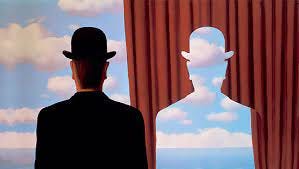I recently published the basics of my theory of personal holism and how it counters dualism. The central claim is that a person is a unitary being, conscious and bodily, but not a consciousness + a body. You can read my essay here. I hope you find it interesting. But you might be wondering at this point "What do ideas like dualism and holism have to do with me? I don't feel they affect me."
I would say in response say that this is a practical issue because many, perhaps most, people, no matter how little they dabble in explicit philosophy, have a stance on the dualism/holism issue that they "live" in their daily lives. I think that often people buy into theories that make superficial sense to them or that they tend to fall into certain ways of living unreflectively and then to some extent rationalize these lifeways by a dim recourse to theories that they have drunk in from the surrounding culture. At some level a lot of people seem to think that they are a mind + a body or a brain + a body. Many religious people believe they are a soul + a body. I don't mean that most people are students of philosophy, of course, but that bad philosophy can harm them and that good philosophy can at the least show them that there is something wrong and that in very broad strokes could show them what they might do about it.
I don't want to intellectualize people's personal problems and substitute philosophy for psychology or personal development in general, and I am in no way trying to suggest that philosophy is a replacement for therapy, if that is called for. Someone could dissociate from their body due to dualistic beliefs, but they could also do so as a result of sexual trauma, and I don’t have much to say about the latter. Furthermore, I do not like putting people in boxes, and I believe there is something more to people than what I am reducing them to, but for the purposes of illuminating problems and hopefully helping people live better lives, I am going to risk trading in stereotypes.
I am doing some research by going out on the web and looking for people’s opinions about their own nature and the ramifications of their views. Quora and Reddit and blogs were of big help in documenting that there are actually people struggling with these issues outside of the ivory tower and that I am not simply making this stuff up.
Various forms of dualism are possible because human beings have the capability of identifying the essential self with different parts of the whole. Where I would say that one should identify with the entirety of one’s person, the dualist picks one aspect or feature of the whole and localizes his point of view “in” it, usually neglecting or abusing other parts. This process is called “overidentification” in psychology. Classic examples are that you can overidentify with your job or with being an athlete or a parent. I would add that you can overidentify with something that you perceive to be an aspect of yourself that might not even be real, such as a mind or a soul, based on your philosophical or religious beliefs.
To take an example, I would suggest that most people who identify with their mind are actually identifying with their intellect or reason, which they think of as their essential self, implicitly following in Descartes’ footsteps. Many such people cut themselves off from their body and emotions as a result. I have a lot of personal experience with this problem that I will share when I write about it.
I see, broadly, nine mistaken ways of living that have to do with dualism or a closely related doctrine. I have encountered, either in person or in print, examples of all of them. You can read about the process of how people lose touch with their bodies in The Wisdom of Your Body: Finding Healing, Wholeness and Connection through Embodied Living, by Hillary L. McBride, who is a therapist. You can also read about the bad effects on empathy of thinking of yourself as a brain and how empathy depends on embodiment in philosopher/psychiatrist Thomas Fuchs’ In Defense of the Human Being: Questions of an Embodied Anthropology. I’ll get back to these two books later.
Divided selves can be characterized by what aspect of a person, real or not, that the dualist identifies with. Here they are:
I am my soul.
I am my mind.
I am the master of my body.
I am my feelings.
I am my body.
I am a mere animal.
I am a scientific object.
I am my brain
I am a computer program.
No doubt I am overlooking possibilities. Combinations are surely possible, and some people—I have no idea how many—escape these categories altogether. In this series, I am going to examine one form of dualism at a time, trying to explore their purported nature, their true nature, their ramifications, and a holist response to each.
I am going to try to publish an essay on each of these kinds of dualism about every two weeks. They might be shorter than some of my other writing, and perhaps that will be welcome.





I believe this will be valuable to many. As you suggest, not just the philosophically curious, but those who just want to lead a life with less conflict as integrated beings.